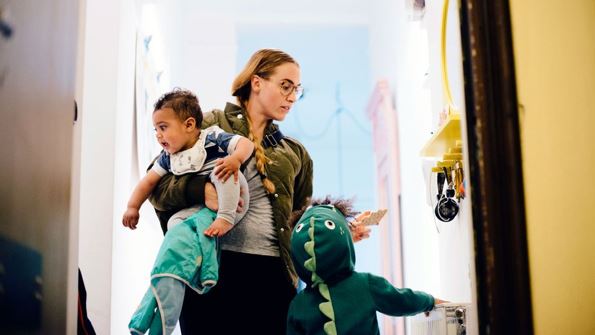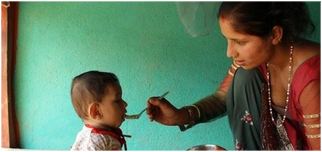The Hidden Pressures on Mothers of Responsibilities Overload
Извор: WUNRN – 22.05.2021

The hidden load: How ‘thinking of everything’ holds mums back – BBC Worklife
By Melissa Hogenboom18th May 2021
When it comes to household responsibilities, women perform far more cognitive and emotional labour than men. Why is this, and is there anything we can do about it?
Organising a playdate, or booking the kids’ medical check-ups. Working out how to hide vegetables in their evening meals, or ensuring there’s enough on the shopping list. Worrying about whether your son is on track at school, your daughter needs new shoes and when to replace your washing machine. On their own, these may all seem like small tasks – but they mount up. And if you ask heterosexual couples with children which partner is most likely to handle them, it is probable that most would offer up the same answer: the mother.

(Image credit: Getty Images)
Numerous studies show that women in heterosexual relationships still do the bulk of housework and childcare. Many couples aim to split their responsibilities 50:50, yet for various structural and socio-economic reasons, end up allocating tasks along typically gendered lines. Even in couples who think that they have achieved an equal division of labour, the more hidden forms of care generally end up falling to the woman.
In fact, an increasing body of research indicates that, for household responsibilities, women perform far more cognitive and emotional labour than men. Understanding why could help explain why gender equality has not only stalled, but is going backwards, despite being more discussed than ever. And a broader understanding of this behind-the-scenes labour could help couples redistribute the work more equally – something that, while initially difficult, could play a significant role in helping mothers lighten their load.
Invisible, unlimited work
Experts say that this hidden work comes in three overlapping categories. There’s cognitive labour – which is thinking about all the practical elements of household responsibilities, including organising playdates, shopping and planning activities. Then there’s emotional labour, which is maintaining the family’s emotions; calming things down if the kids are acting up or worrying about how they are managing at school. Third, the mental load is the intersection of the two: preparing, organising and anticipating everything, emotional and practical, that needs to get done to make life flow.

Research shows much of a household’s emotional labour, such as calming distressed children, is part of the load that generally falls on mothers (Credit: Getty Images)



